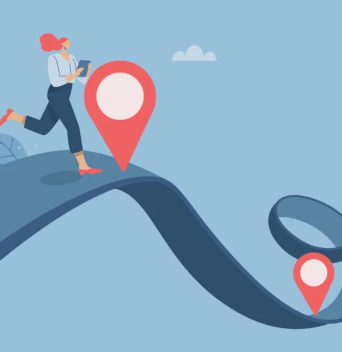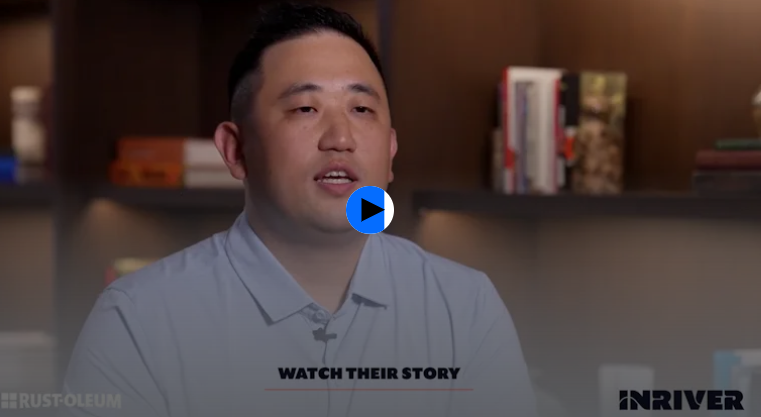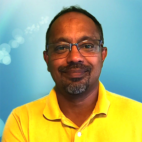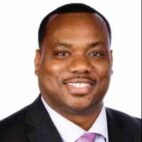
Meet the Authors
Key Takeaways
-
SAPInsider EMEA 2024 speaker Hein Wagner emphasizes the importance of resilience and appreciating life's challenges as opportunities, particularly drawing from his personal experiences of being born blind.
-
Through storytelling and humor, Wagner aims to inspire audiences to embrace their own challenges and create positive outcomes, reinforcing the message that anything is possible.
-
Wagner advocates for inclusivity in the workplace, highlighting the evolving attitudes towards hiring individuals with disabilities, and stresses the need for organizations to actively consider and implement inclusive practices.
On 12-14 November, Copenhagen will welcome over 1000 SAP Insiders for the SAPinsider EMEA 2024 Conference, where SAP end users, experts, partners and leaders will enjoy three days of connecting, learning, and collaborating. As part of its program, the conference will hold a keynote from Hein Wagner – ‘A Blind Man with a Vision’, who will explore the power of resilience and appreciation, and how it can be applied to the technology industry.
Wagner is a public speaker whose goal is to inspire organizations and individuals to turn obstacles into major opportunities – exactly as he did with his blindness. With a background of over 20 years in IT, Wagner ‘stumbled upon’ the public speaking business and has acted as an ambassador for SAP in the EMEA region.
In anticipation of his message of hope to SAP Insiders, Stephen Wellman and Giacomo Lee sat down with Wagner to discuss the journey behind his philosophy of life and business, and to find out what can be expected from his upcoming speech in Copenhagen.
Explore related questions
Stephen Wellman (SM): Let’s talk a little bit about your keynote, “A Blind Man with a Vision”. What will you be presenting, what is the overall topic – and why will our audience be excited to hear from you?
Hein Wagner (HW): In essence, it is a life story. So, I really take it back to me being born blind and the challenges that I have faced. My specific focus will be ‘navigating the unknown’ because, I guess, every single step that I’ve taken since the day I first walked has happened to be a step into the unknown.
I use a storytelling approach through my keynote, reflecting on a lot of my extreme adventures to tie them into my keynote presentation and make it as a theme for [SAPinsider EMEA]. For one, we’ll be looking at how I broke the blind man speed record, where I drove a car at 322+ kilometers per hour. I’m going to use adventures like these throughout my talk and tie them back to navigating the unknown and finding the inner resilience and power to turn obstacles into opportunities.
Giacomo Lee (GL): When speaking to business audiences, what do you hope they take away from your stories?
HW: What I’m known for and what I get rehired for all the time is that I’ve developed a technique to make people feel all the emotions on the spectrum, from laughing out loud to tears of introspection. I use a lot of self-deprecating humor in my presentation because I know how stiff and strict these events can be. I did a show many years ago, a theatre production called “Lighter Side of Living in Darkness” because, my goodness, if you can’t find the light in living in darkness, it’s gonna suffocate you.
So, a lot of humor comes through the way that I experience the world and I tie that into my presentation. I would think and hope that people will walk away with a fresh perspective, a sense of inspiration, and a feeling that anything is possible.
GL: I’m also intrigued by your IT background and relationship with SAP. I’d love to know the overview of how you began and how your path crossed with that of SAP’s?
HW: You know, whilst I was still at school, I realized that two pillars would hold up the bridge for me from being dependent for the rest of my life and being independent. And those two pillars were technology and education.
When I qualified from university and got all my certifications in programming, I couldn’t land a job until I removed three stupid words from my CV: “Blind since birth”. Within five days, I had four interviews lined up and I felt [that this was] just because none of those people knew it was a blind guy on his way to the interview. And I just never gave up.
When I moved into the speaking business by chance, my first clients happened to be tech companies, so much so that SAP appointed me as an ambassador a number of years ago to help customers with digital transformation in the sense that it’s, yet again, the unknown. It’s inspiring people [to think]: “if a blind guy can do it, what’s your excuse?”
I’m so grateful that I explored the tech pillar that was holding up that bridge because it certainly led to my complete independence of traveling the world on my own. But not only that, it enabled me to run a very successful business by utilizing tech on a daily basis and also paying it forward to help others, such as through my experience in starting a tech-based academy for the blind back in South Africa.
GL: Do you think industries have changed in the way they allow a more inclusive environment for all kinds of people to apply for jobs?
HW: For sure. There has been a huge focus on DEI; it’s especially accelerated in the last five years. But if you look at the employment stats worldwide of blind people, I think in some areas up to 97 percent of the blind population is still unemployed. But these days, it’s more of an advantage to have it on the CV than a disadvantage because there are companies that are really embracing inclusiveness, and SAP happens to be one of them, including blind coding that SAP supports around the globe. They’ve done a lot of phenomenal things to get people with disabilities into the workforce. But there is always more to be done.
SW: You will be talking to many business and technology leaders. What more can be done from their perspective on diversity and how might those techniques make them more effective managers of teams?
HW: What everyone needs to do is think [about] inclusivity and put it on the agenda. You know, this is just an anecdote, but I used to be a Windows guy and 12 years ago, I switched to Apple Mac. The only reason I did this was a wonderful piece of software on the Mac called “Voiceover”, but [blind people] couldn’t find it. So, the company changed the bootup sequence so that when you buy a Mac or Apple TV or Apple Watch, a sighted person will only see that screen once. You can flick it away and you’ll never see it again. So, sometimes just a simple switch can make a world of difference, and it doesn’t have to be complicated.
Also, I always say to my clients that when you are about to employ blind people, don’t think about how you as a sighted person would try and work your laptop. Because if I close your eyes now, you’re probably not even gonna find what you need, compared to us who have practiced this for maybe 40 years. Instead, get the input from the audience that you want to empower.
So, as can be seen from Hein Wagner’s example, whoever you are and whatever circumstances you’re in, you can turn obstacles into opportunities. Register here for SAPinsider EMEA 2024, taking place in Copenhagen, Denmark this 12-14 November.









